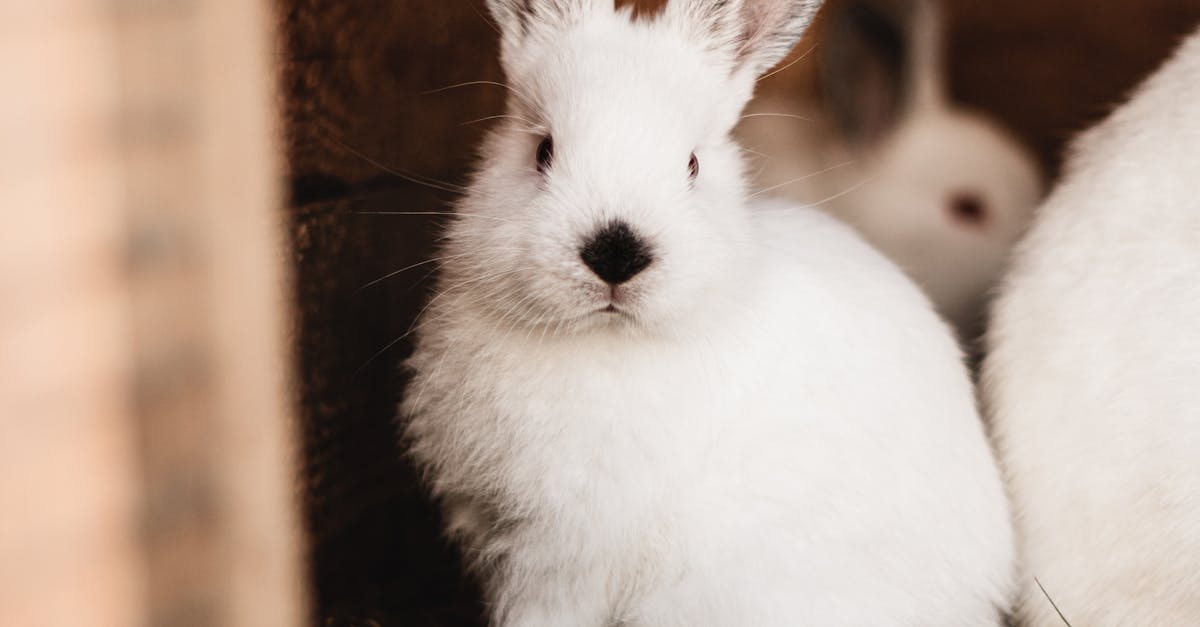Rabbits are adorable, social, and intelligent pets, but they require specific care to stay happy and healthy. As a pet owner, understanding their unique needs can feel overwhelming at first. Fortunately, with a few key tips, you can create the perfect environment for your furry friend and ensure they thrive as part of your family.
🩺 Vet Recommendations
Caring for pet rabbits goes beyond providing food and shelter. These animals have delicate systems and unique behaviors that require attention. As a veterinarian, here are my top recommendations for keeping your rabbit healthy:
- Provide a spacious enclosure where your rabbit can hop, stretch, and exercise.
- Feed a diet primarily consisting of high-quality hay, supplemented with fresh greens and limited pellets.
- Ensure fresh water is always available in a clean bowl or bottle.
- Schedule annual veterinary check-ups to monitor their health.
- Spay or neuter your rabbit to prevent unwanted litters and reduce the risk of certain cancers.
- Offer plenty of chew toys to prevent dental issues and keep them entertained.
Rabbits are prey animals, so they may hide signs of illness. Observing their behavior closely is key to identifying when something is wrong.
📋 Care Tips
To give your rabbit the best life possible, focus on their physical and emotional needs. Here are some practical tips to get started:
- Diet: Provide unlimited access to fresh hay, which is essential for their digestion and dental health. Supplement this with leafy greens like romaine lettuce, parsley, and cilantro. Avoid iceberg lettuce, which has little nutritional value.
- Housing: Rabbits need a clean, safe, and spacious enclosure. Avoid wire-bottom cages, as they can hurt your rabbit’s feet. Instead, opt for a solid-bottom pen with soft bedding like paper-based litter or hay.
- Exercise: Rabbits require several hours of daily exercise outside their enclosure. Supervise them in a rabbit-proofed area to prevent chewing on electrical cords or harmful plants.
- Grooming: Brush your rabbit weekly to remove loose fur, especially during shedding seasons. Long-haired breeds like Angoras may need more frequent grooming.
- Socialization: Rabbits are social animals and thrive on interaction. Spend time with them daily, offering gentle pets and engaging in playtime.
✅ Do’s and Don’ts
When it comes to rabbit care, knowing what to do—and what to avoid—can make all the difference.
- Do: Provide a balanced diet rich in fiber.
- Do: Handle your rabbit gently and support their back legs to prevent injury.
- Do: Ensure they have a quiet, stress-free environment.
- Don’t: Feed your rabbit sugary treats, as they can upset their digestive system.
- Don’t: Bathe your rabbit unless instructed by a vet, as it can cause severe stress.
- Don’t: Leave your rabbit unattended in unsafe areas where they could chew on hazards like cords.
By following these do’s and don’ts, you’ll help your rabbit live a long, happy life.
💡 Expert Advice
Rabbits are complex creatures with unique needs, but they’re also incredibly rewarding pets. The key to successful rabbit care is understanding their behavior, maintaining a consistent routine, and seeking veterinary guidance when needed. Building a bond with your rabbit takes time and patience, but the love and companionship they provide make it all worthwhile.
If you’re ever unsure about your rabbit’s health or care, consulting a veterinarian is your best option. Early intervention can prevent small issues from becoming serious problems.
FAQs
Q: How often should I clean my rabbit’s enclosure?
A: Spot-clean daily to remove soiled bedding and droppings. A full clean with fresh bedding should be done weekly.
Q: What are signs that my rabbit is sick?
A: Look for changes in appetite, droppings, or behavior. Other signs include sneezing, watery eyes, or a hunched posture. If you notice any of these, consult a vet promptly.
Book a $49 online vet consultation at https://www.dialavet.com for fast, expert advice.























